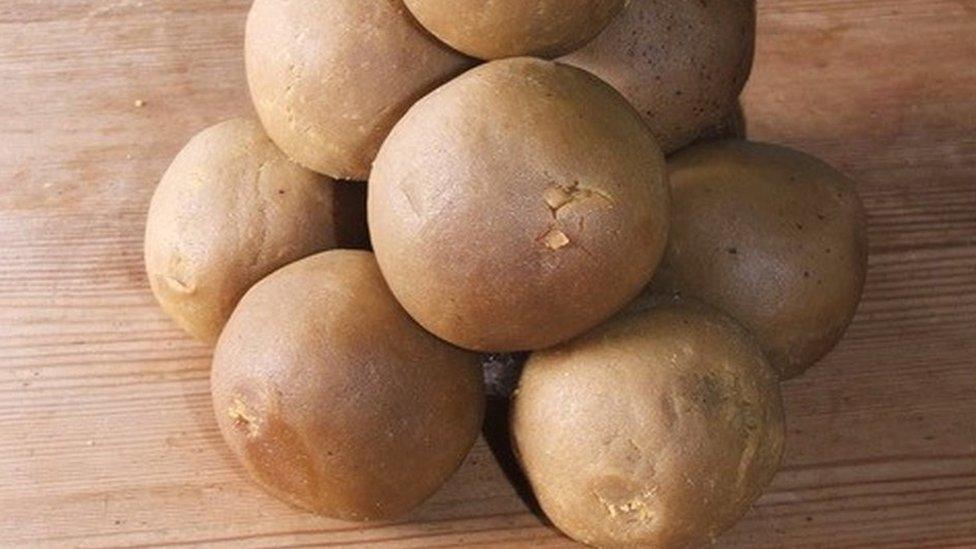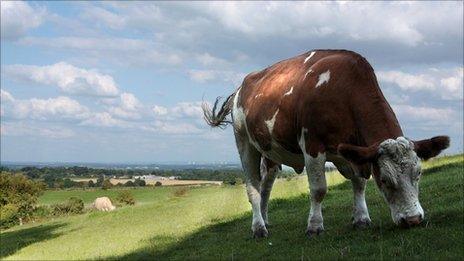Tewkesbury mustard balls seek 'protected status'
- Published

Tewkesbury mustard and mustard balls can be traced back to the 16th century
Tewkesbury mustard balls could be given the same protected status as Cornish pasties and Melton Mowbray pork pies.
A producer has applied for Protected Geographical Indication (PGI) status for its mustard and mustard balls.
If the bid is successful, a Tewkesbury mustard maker would have to produce it in the area and to an agreed method.
A national consultation, external, allowing the public to view the application in full and make any objections, was launched on Thursday.
Tewkesbury mustard and mustard balls can be traced back to the 16th century.
It was mentioned in William Shakespeare's Henry IV: Part II when Falstaff describes Poins as having "a wit as thick as Tewkesbury mustard".
Mustard balls are the dried form of the condiment, created to aid transportation and preservation. Liquid is added to the dried mixture to return it to a more familiar and useable form.
Confined to GL20 postcode
The Tewkesbury Mustard Company is the only producer making the product in the local area, and a year ago it applied for PGI status arguing that only local producers should be able to make the medieval mustard recipe.
The company's owner Samantha Ramsey said the mustard needs to be protected to "stop people making anything that is a representation of a Tewkesbury mustard".
If the government decides to forward the application to the European Commission and it secures protected status, Tewkesbury mustard production would be confined to just the GL20 postcode.
Ms Ramsey said the protection would cover both "Tewkesbury mustard in jars and traditional balls".
"[PGI status] will allow other people to come to Tewkesbury to start making a mustard that is called Tewkesbury mustard, but it has to be to my specification."
The national consultation is due to end on 13 May,
- Published6 September 2013

- Published21 June 2011
